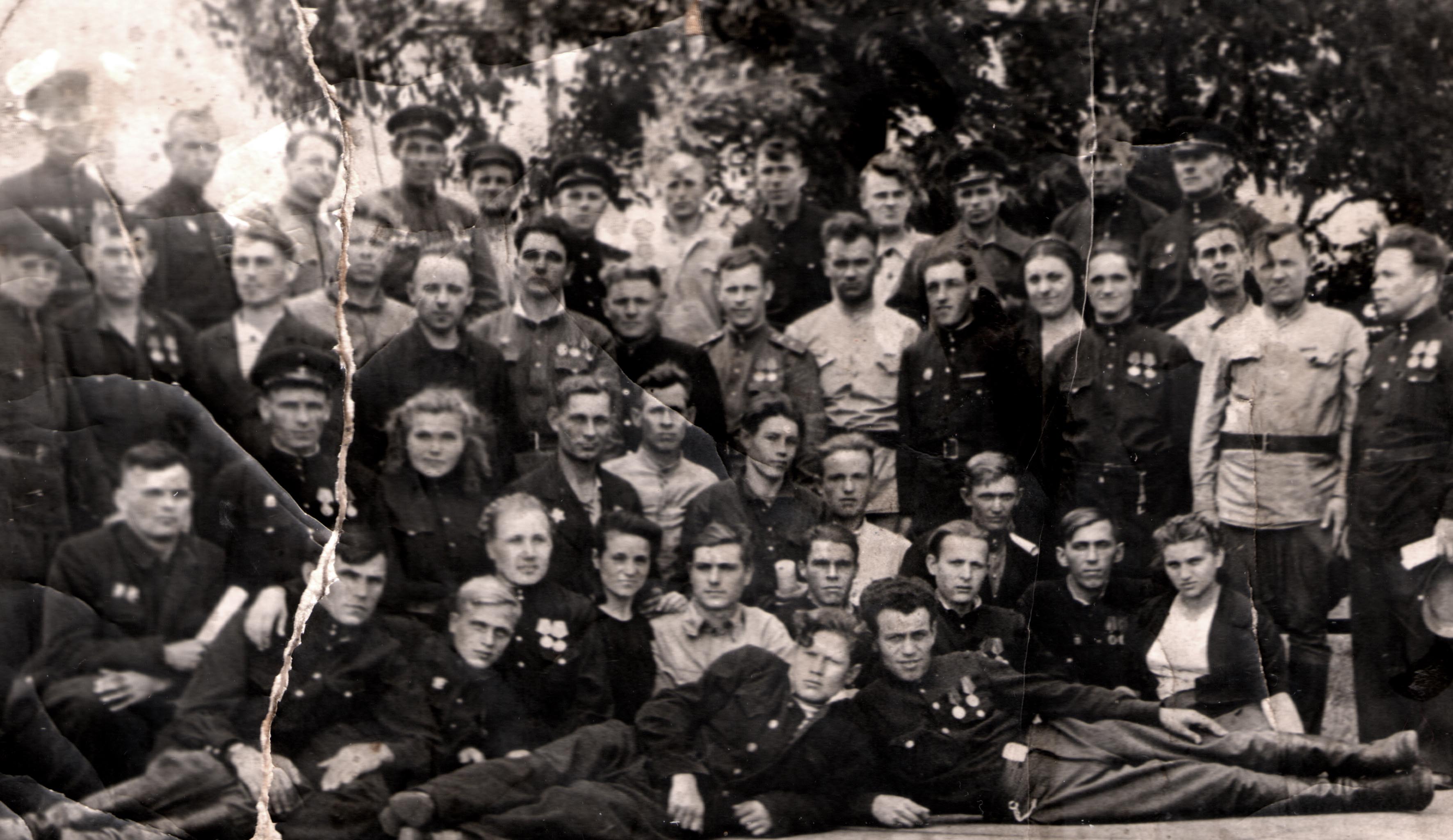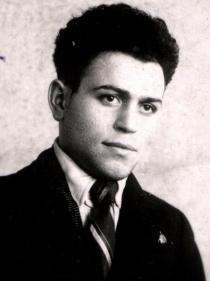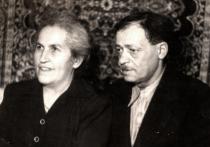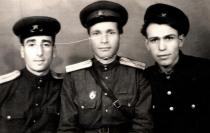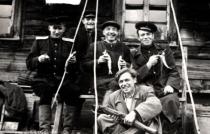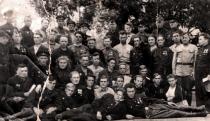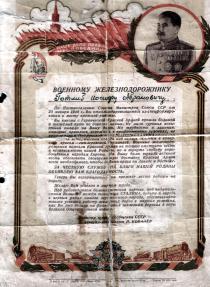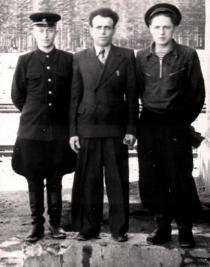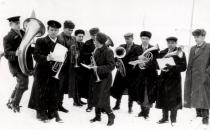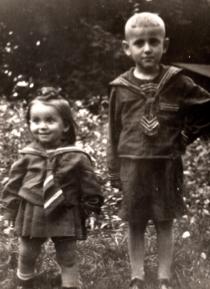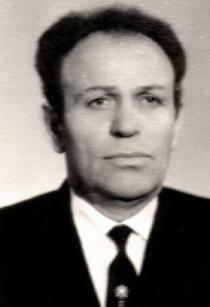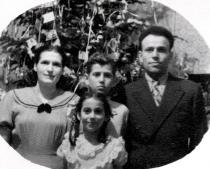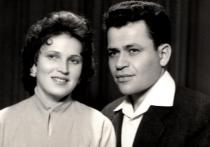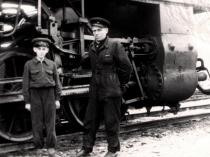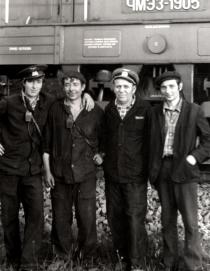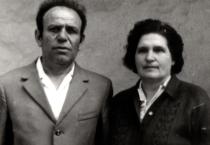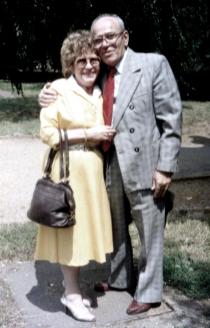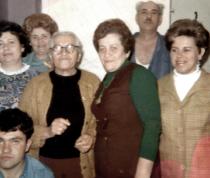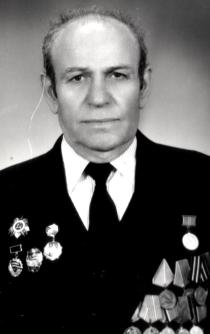This is me, Iosif Gotlib (lying on the right in the first row) with locomotive column #8. Members of column had this photograph taken for the memory. The war was nearing its end and each of us wanted to take home a photo of those whom we spent severe wartime years. This photo was taken near Berlin (Germany) in 1945.
In January 1942 the military commandant looked at my documents and said that there was a railroad crew formed in Karaganda and that he was sending me there. There were 3 columns formed and I joined the 28th locomotive column. There were 10-15 crews in each column, 12 members in each: 2 locomotive operators, 2 assistants, 2 stokers, 2 chiefs, 2 escort men, 2 foremen: those were 2 crews. We worked two shifts on trips: one crew taking a rest, another one working. There was a railcar carriage for crews to take a rest. There were plank beds and an iron stove where we could make something to eat. Chiefs and escort members were officers and the rest were privates. We hauled military force and military loads. We drove at night to avoid raids. We hauled people, tanks and planes - anything. As a rule our destination points were near the frontline so that people or equipment could reach it promptly. There were frequent air raids. Almost in every trip there were losses of staff: crewmembers were wounded or killed. We looked death in the eyes every day. Of course, it was scaring, but not at work. During the shift I was calm and concentrated.
In March 1945 we already began to drive trains in the direction of Germany. In late March 1945 our crew was awarded with orders. A locomotive operator of my crew was awarded an Order of the great Patriotic war of the 1st grade and I was awarded the same order of the 2nd grade. I was also awarded medals ‘For Courage’ for fighting for various towns. [Editor’s note: There are orders and medals awarded to him for his combat deeds and labor achievements on his jacket, including the Order of Great Patriotic War, Order of Glory, medal for Defense of Stalingrad.] In late April 1945 our train was running in the vicinity of Berlin, about 30 km. We didn’t reach Berlin, though.
We were near Berlin on Victory Day. Everybody was happy that this terrible war was over. People greeted and hugged one another. There were fireworks in the evening and orchestras playing in squares and streets. My wife and I were looking forward to demobilization, but we were told that our column was staying in Germany. We transported the military, military shipments and food. Only in October 1945 our column returned to Nida in Byelorussia. Only 19 of 300 who were initially in our column survived.
